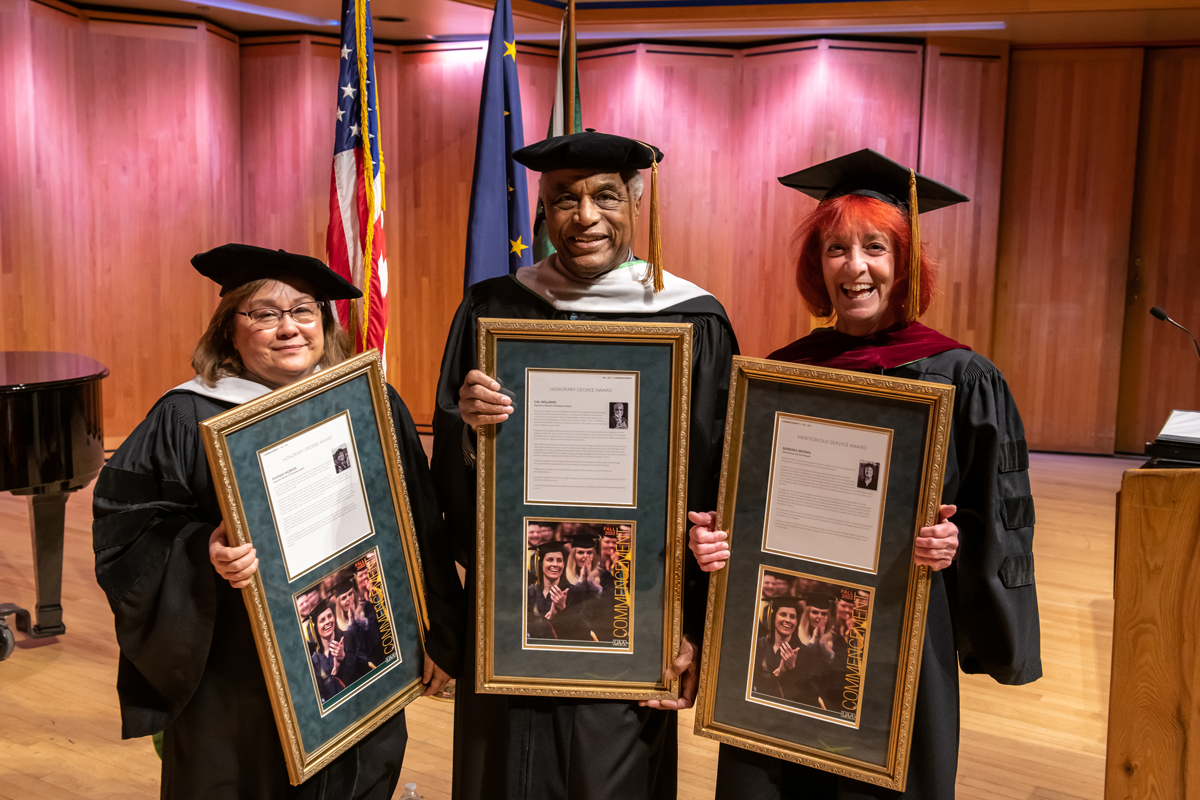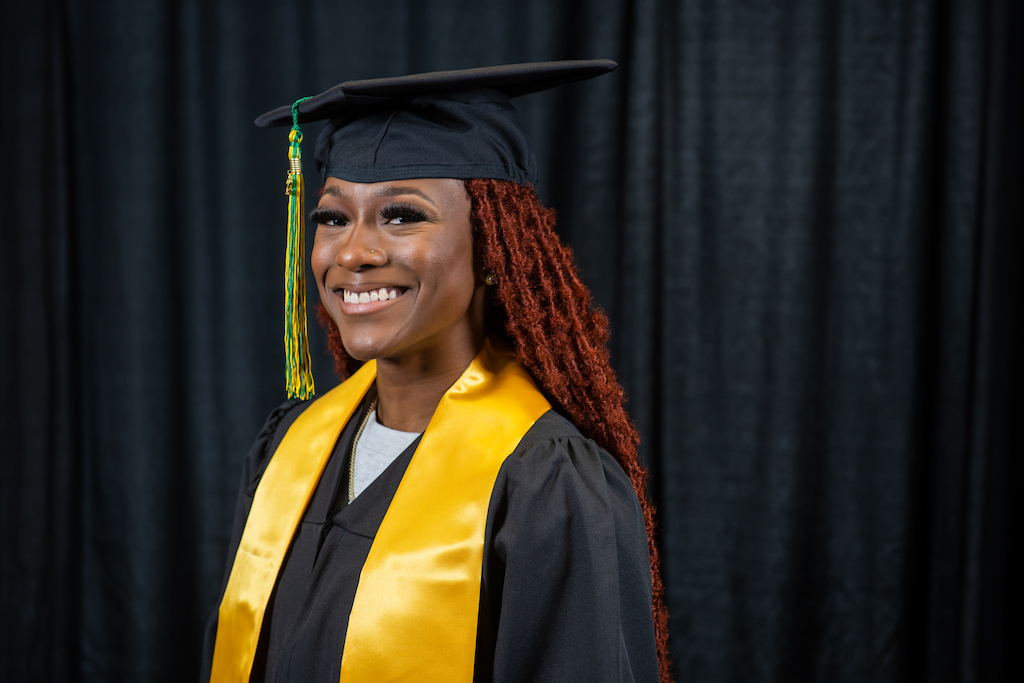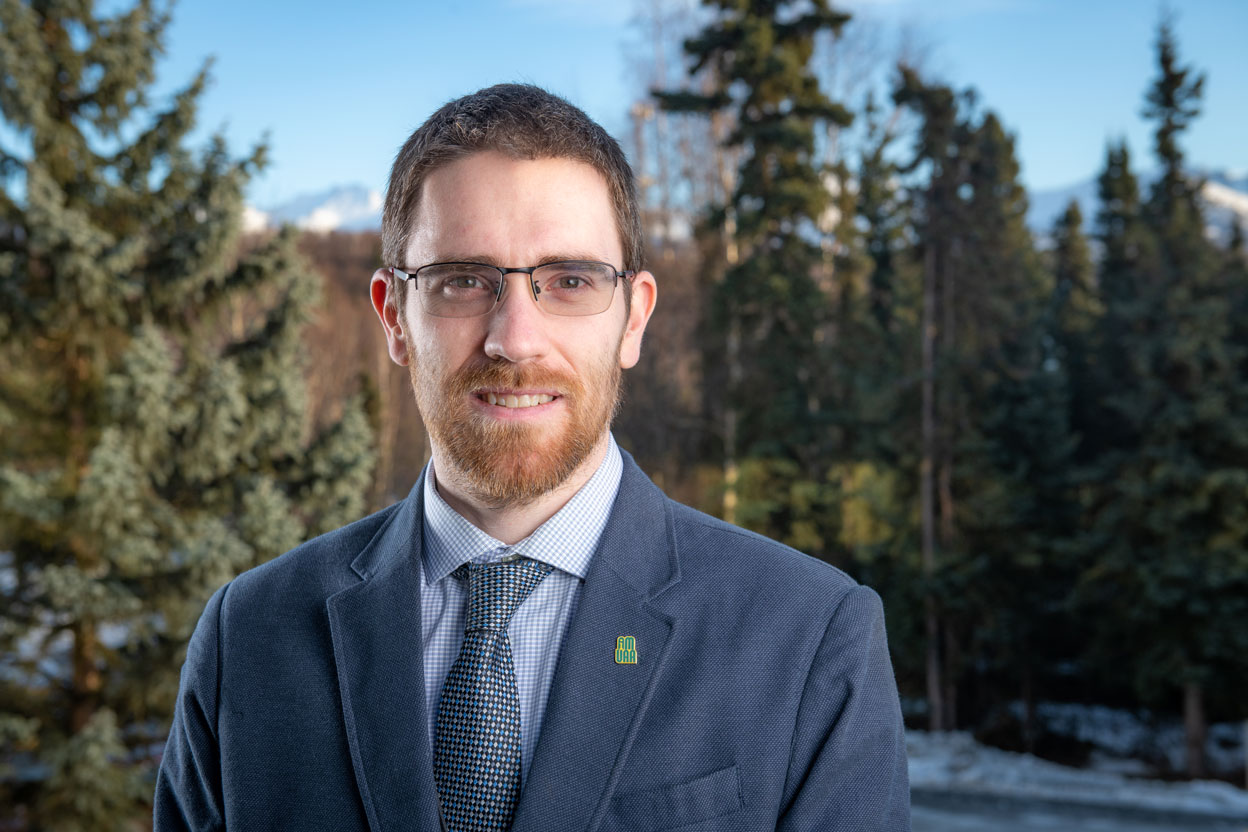Puppy loves and dental gloves: Positive effects of therapy dogs in dentistry
by Jordana Newman, UAA College of Health |
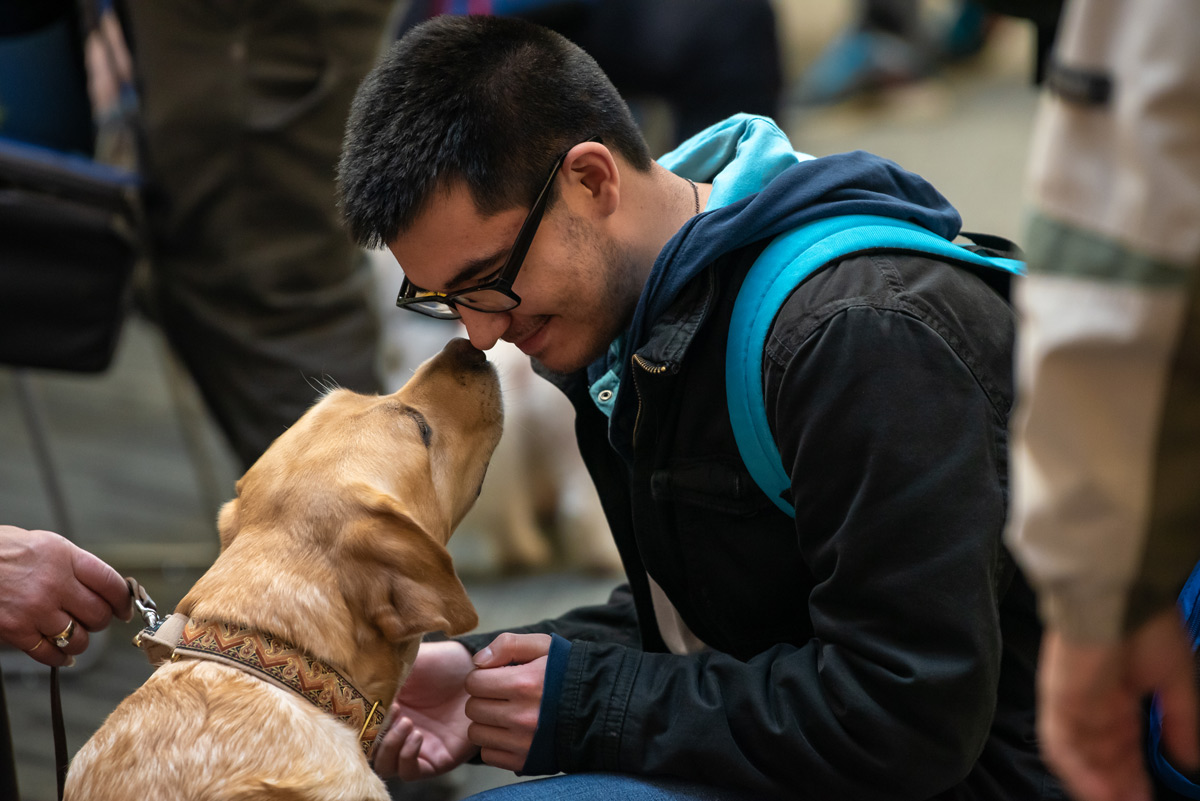
This spring, senior dental hygiene students presented their informational research posters to the dental hygiene community as part of their Community Dental Health II course for continuing education.
Topics ranged from the “Effect of Virtual Reality on Dental Pain and Anxiety in Children” and "The Effect of Laser Phototherapy on Recurrent Herpes Simplex Virus,” while feedback from the community was positive. Several participants reported learning new information they would consider implementing into clinical practice, and many said the students were articulate, professional and knowledgeable about their research topics.
“I am a 1997 graduate of the UAA dental hygiene program and I look forward to attending the UAA research poster continuing education presentations,” said Lori Reetz, president of the Alaska Dental Hygienists' Association. “The students' presentations covered sensitivity agents in toothpaste and utilizing service dogs in the dental office. All of the students did a good job with their presentations. They easily answered questions, but the star of the show was the service dog.”
Reetz is referring to “Puppy Loves and Dental Gloves” (Therapy Dogs in Dentistry) presented by dental hygiene students Shayna McGinty, Amber Carroll and Tetiana Sazhnieva. When asked how the students chose therapy dogs as their research topic, McGinty explained it started when her family adopted two new puppies and noticed how incredible their temperaments were.
“Even as puppies, they were overall calm and snuggly and dispositioned to good behavior,” said McGinty. “I’ve noticed in my experience working in the dental field that many people struggle with dental anxiety and I wondered if dental therapy dogs were even a thing. I reached out to a local training facility and they confirmed that dental therapy dogs are, in fact, a thing.”
McGinty began researching the topic to determine if there were measurable benefits to having a dental therapy dog in a dental office and decided to start training one of her puppies, Luci, as a dental therapy dog with Alaska Dog Works. After conducting an initial literature review last semester, McGinty found there were positive effects of having a dental therapy dog.
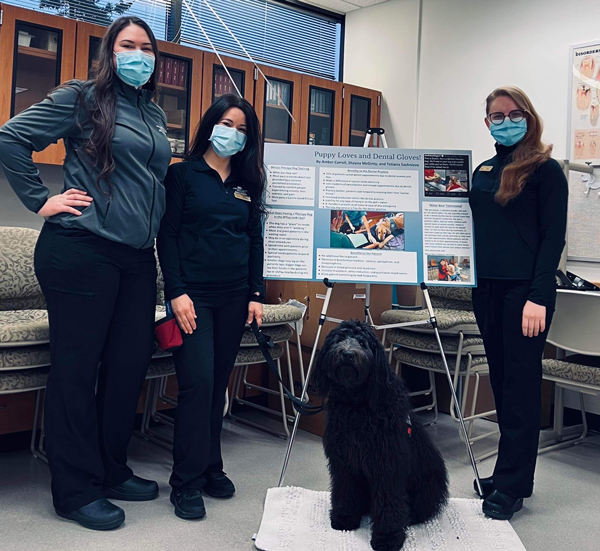
“One of the things I found interesting is how petting a dog can lower our cortisol (hormone for stress) and epinephrine and norepinephrine (fight or flight hormones) while also increasing our oxytocin (warm, fuzzy feeling). Also, having a dog around can make a dental visit unique and special — an added benefit to the dental office and providers,” she said.
McGinty was excited to share her findings and felt it was important to present them to her dental hygiene classmates and community. During the presentation, her team discussed the benefits of dental therapy dogs, what kind of specialized training therapy dogs receive and what it might look like to have one in the office. However, one team member, in particular, stole the show. “When our group decided to present this topic as a research presentation, I asked if it would be okay to bring Luci,” said McGinty. “We got permission, and she was a star!”
McGinty looks forward to continuing to share her knowledge about dental therapy dogs and feels the Community Dental Health II course has helped prepare her for a career in dental hygiene despite the challenges her cohort faced this past year.
“It's been an amazing experience so far! I love educating the community in any way I can. We learn how to put together community programs and conduct and evaluate research resulting in making us well-rounded, dental professionals. As many know, the dental hygiene program is very strenuous, even when we aren’t in a global pandemic. However, that means the sense of accomplishment when we are done will be truly something to be proud of,” she said. “I’m so proud of our class and all of our hard work and I am excited to see the differences we will make out in the real world.”
For more information about the program, visit the dental hygiene website.
 "Puppy loves and dental gloves: Positive effects of therapy dogs in dentistry" is licensed under a Creative Commons Attribution-NonCommercial 4.0 International License.
"Puppy loves and dental gloves: Positive effects of therapy dogs in dentistry" is licensed under a Creative Commons Attribution-NonCommercial 4.0 International License.










